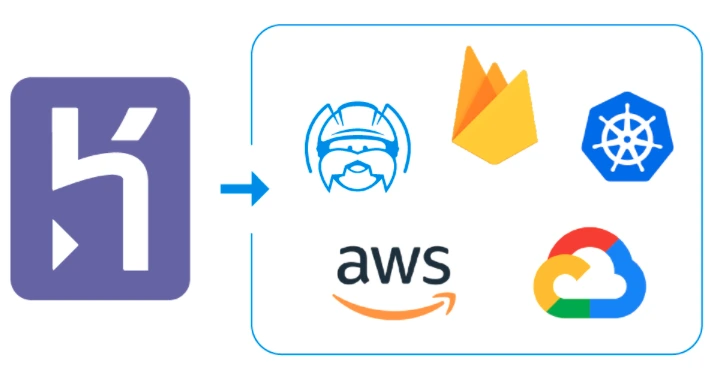Platform-as-a-Service (PaaS) like Heroku is a great way to start a variety of projects. Heroku isn’t always the most brilliant option, but the platform appeals to many developers offering excellent value.
Still, the service has several drawbacks. The application also has several technical limitations, such as high pricing, disorganized documentation, and a flawed CLI.
Top 5 Alternatives to Heroku

There are several alternatives to Heroku, but only a few of them are genuinely beneficial. Here are some of the pros and cons of each of them.
Kubernetes
Kubernetes is a loosely coupled material storage software. The Kubernetes can manage Docker containers, and it is a lightweight, powerful, and valuable tool. Aside from handling containers, it provides a lot of connectivity and automation. As such, it can serve as an alternative to Heroku.
Most developers dislike it because it is difficult to use. The game Pokemon Go, one of the biggest hits in the gaming industry, relies on Kubernetes. The key to its success is the amount of mobility and Google’s assistance.
Pros
- RedHat (OpenShift) and Google (GKE) support the project.
- Includes stateless, stateful, and large datasets.
- Autoscaling based on CPU usage.
Cons
- Setup and configuration are not accessible.
Firebase
Firebase is another excellent alternative to Heroku. Similar to Heroku, Firebase can be installed in seconds using its CLI. It provides SSL encryption, custom domains, backend storage, and anything else you might need for your project.
Its low cost gives Firebase an edge over Heroku and other app platforms. In addition, it relieves a significant burden on designers from a server perspective.
Pros
- Real-time updates.
- Google Data/AdSense interactions.
- Cross-platform API and device collaboration.
Cons
- You cannot share it with others.
Back4app
Back4App is a BaaS that offers the same flexibility as a PaaS like Heroku. The Back4App, one of the most popular and renowned BaaS options today, is an excellent alternative to Heroku because of its flexible pricing tiers and numerous other noteworthy attributes.
Furthermore, Heroku is likely to delay deployments of more prominent apps. Back4App, on the other hand, does not have such technical shortcomings. Platforms like this will allow developers to create incredibly complex mobile apps.
Pros
- No vendor lock-in exists.
- Adaptable pricing policies.
- It has a robust developer community.
Cons
- Inadequate documentation.
- Documentation page with non-standard UI.
Amazon Elastic Compute Cloud (EC2)
AWS and Heroku are cloud service providers that enable developers to build, manage, and scale mobile and web apps. This cloud platform offers app hosting and cloud computing. Among their essential services are Elastic Beanstalk (PaaS) and Elastic Compute Cloud.
On Heroku’s platform, you can run applications in a virtual environment. Elastic Compute Cloud (EC2) is the closest alternative to Heroku’s, and EC2 has more RAM and swap storage.
Pros
- Distributing store volumes is independent of a computer system.
- Companies can increase or reduce the capacity of EC2 in minutes.
- Real-time provisioning of new servers.
Cons
- All server instances are virtual.
Elastic Beanstalk
The Elastic Beanstalk platform is another excellent alternative to Heroku. Typically, people use the AWS service, which is also called Amazon Web Services. AWS has many unique features that Heroku does not have. Developers’ main criteria and needs were taken into account when developing this platform.
Pros
- Scalability of the database.
- REST API.
- Cloud code.
- Push and email alerts.
- Validation.
Conclusion
Heroku is a popular PaaS (platform-as-a-service) platform. Heroku alternatives exist, but only a few are useful for several reasons. Amazon’s Elastic Compute Cloud (EC2) provides more RAM and swap storage so it can be a reasonable alternative.





